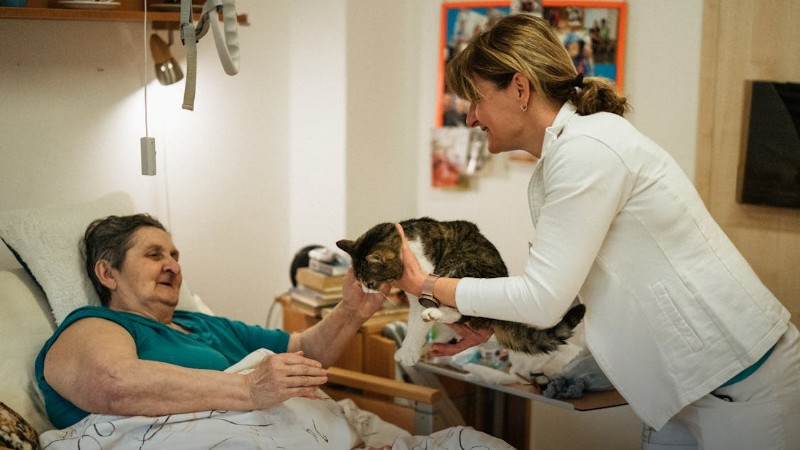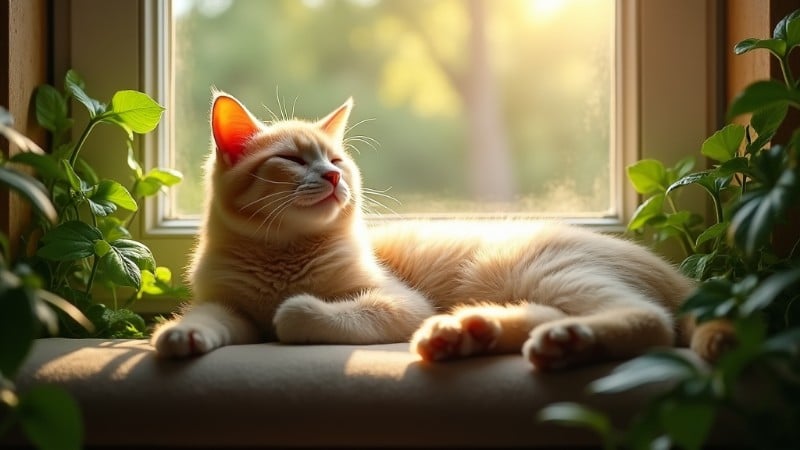Cat’s Cradle of the Shenandoah Valley, a nonprofit focused on rescuing and finding homes for cats, has received a generous $20,000 donation from PetSmart Charities. This funding greatly helps the organization’s goal of reducing the number of homeless cats through adoptions, veterinary care, and community outreach.
The grant will cover important expenses like spay/neuter surgeries, vaccinations, and microchipping. It will also support volunteers who provide temporary foster care and socialization, making sure each cat is ready for adoption into a loving home.
With National Adoption Week coming up, Cat’s Cradle is preparing for a big adoption event at PetSmart stores in Waynesboro and Harrisonburg. The aim is to find forever homes for at least 90 cats and kittens. Events like this help reduce overcrowded shelters and give people the chance to adopt a pet that suits their lifestyle.
Pet adoption can benefit people of all ages, but seniors, in particular, can gain a lot from welcoming a pet into their homes.
Key Takeaways
Adopting a pet, especially for older Americans, offers numerous benefits such as reliable companionship, reduced loneliness, and increased opportunities for physical activity.
- A $20,000 donation from PetSmart Charities is aiding Cat’s Cradle in rescuing and rehoming cats, helping to reduce the number of homeless felines.
- Pet adoption can significantly boost seniors’ well-being by easing stress, lowering blood pressure, and providing constant companionship.
- Cats are especially well-suited for older Americans due to their independent yet affectionate nature, with breeds like the Ragdoll and American Shorthair being ideal choices.
The role of pet companionship in senior well-being
For many older adults, feeling lonely is a big concern. As family members move away and friends become fewer, being isolated can harm both mental and physical health. Studies show that having a pet can really help seniors feel better by reducing stress, lowering blood pressure, and offering companionship.
Pets, like cats and some dog breeds, provide unconditional love and companionship, which is very beneficial for seniors living alone. Spending time with pets can increase serotonin and dopamine levels, which improves mood and eases anxiety. Also, having a pet has been linked to lower risks of depression and mental decline, making it great for older adults who want to stay mentally and emotionally healthy.
Besides companionship, pets can encourage physical activity. Cats need minimal care outside of feeding, grooming, and playtime, but small to medium-sized dogs can give seniors a reason to take daily walks. Regular exercise is key to keeping mobile, heart-healthy, and well overall.
However, while having a pet has many benefits, picking the right pet is important. Not all breeds or temperaments work well for seniors, and choosing the wrong pet can lead to frustration or even safety issues.
Matching lifestyle with companionship
Before getting a pet, seniors should think about a few things like their physical abilities, living situation, and future plans. How active you are helps decide the right pet. Some animals need more care and exercise than others. An energetic dog might be great for an active senior, but someone with mobility challenges might prefer a calm, easy-to-care-for breed.
Think about size and strength too. Big, strong dogs can accidentally cause falls, especially if you have balance issues. Smaller dogs or calm, well-trained larger dogs are usually safer. Consider grooming needs as well. Long-haired pets need a lot of grooming, which might not be practical for everyone. Pets like short-haired cats or hypoallergenic small dogs require less upkeep.
Look at a pet’s personality and how easily it can be trained. Some pets are more independent and might not be as companionable, while very energetic breeds may be tough to manage.
The benefits of cat adoption for seniors
For seniors who may not have the energy or ability to care for a dog, cats provide an excellent alternative. Cats are independent yet affectionate, require less space, and do not need regular walks. Some of the best cat breeds for seniors include the Ragdoll, which is known for its gentle and affectionate nature and enjoys being around people. The British Shorthair is another excellent choice, as it is calm, low-maintenance, and enjoys companionship without being overly demanding.
Persian cats, while requiring regular grooming, are known for their quiet and loving nature, making them great for seniors who prefer a relaxed home environment. Maine Coons, one of the largest domestic cat breeds, are gentle giants with affectionate personalities, making them great for seniors who want a more interactive and sociable cat. Adopting an adult cat, rather than a kitten, can also be beneficial, as their personalities are already developed, making it easier to find a good match.
Supporting pet adoption and rescue organizations
Organizations like Cat’s Cradle help make sure pets find loving homes. They don’t just focus on adoptions; they also work on reducing the number of stray pets through spay/neuter programs, education, and reaching out to the community. Every year, Cat’s Cradle helps spay or neuter nearly 4,000 cats and aids over 100 families who need help caring for their pets.
PetSmart Charities is a top group that helps rescue organizations find homes for pets. Shelters around the U.S. struggle to care for all the animals, says Heidi Marston, director of pet placement at PetSmart Charities.
Final thoughts
National Adoption Week emphasizes the strong bond between humans and pets. For seniors, adopting a pet means companionship, better well-being, and more joy in their daily lives.
The upcoming adoption event at PetSmart in Waynesboro and Harrisonburg gives seniors and others a chance to find the perfect pet. By adopting or supporting rescue groups, people help build a more caring and pet-friendly community.
For those thinking about adoption, Cat’s Cradle invites potential pet owners to check their website for info on pets and events. These adoption programs do more than place pets in homes—they help create a community where animals and people can thrive together.














